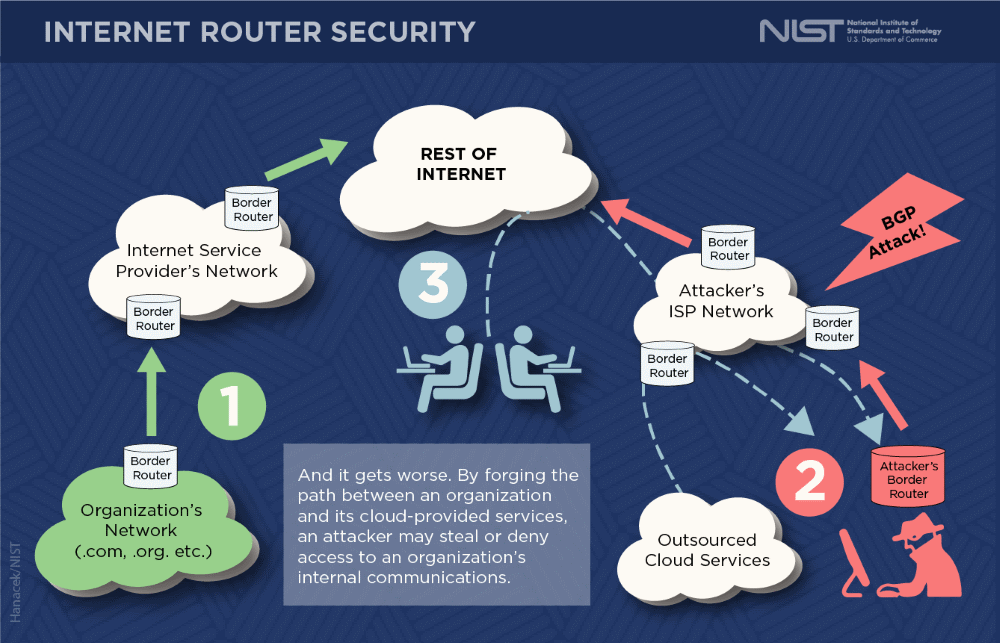Two US government agencies have united forces to coordinate the creation of a new set of standards aimed at securing the process of routing of information between major Internet entities, such as Internet Service Providers, hosting providers, cloud providers, educational, research, and national networks.
The solution they developed is actually a collection of standards known collectively as Secure Inter-Domain Routing (SIDR).
SIDR standards will secure Internet routing
SIDR is the first comprehensive effort of its kind aimed at improving the security of BGP (Border Gateway Protocol), an Internet networking protocol used to route information between large Internet networks.
The protocol works by each router advertising to its neighboring networks what IP blocks are available on its network. When data needs to travel from one network to another, the sending router selects the best neighboring router to send the data based on an internal score that describes each adjacent router's reliability. The protocol is a little bit more complex and we can't describe it here in full. You can read more about BGP
here.
BGP's biggest problem is security, or its lack of. Developed in the late 1980s, security was not a major threat vector at a time before the Internet we know today, so it wasn't taken into consideration when building the original protocol.

